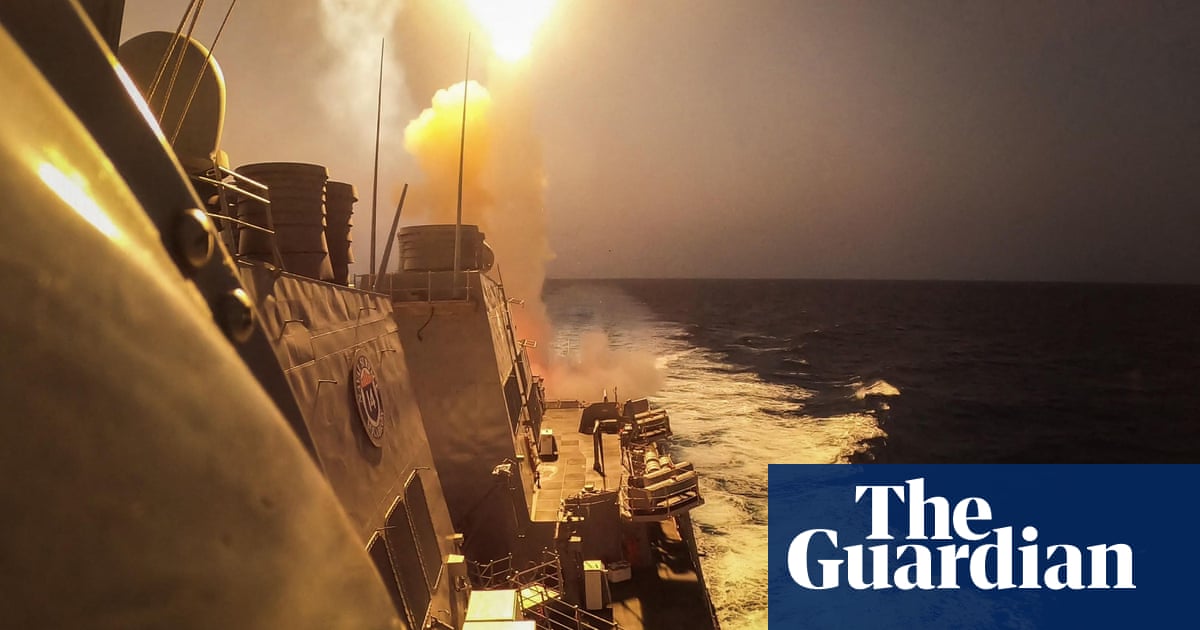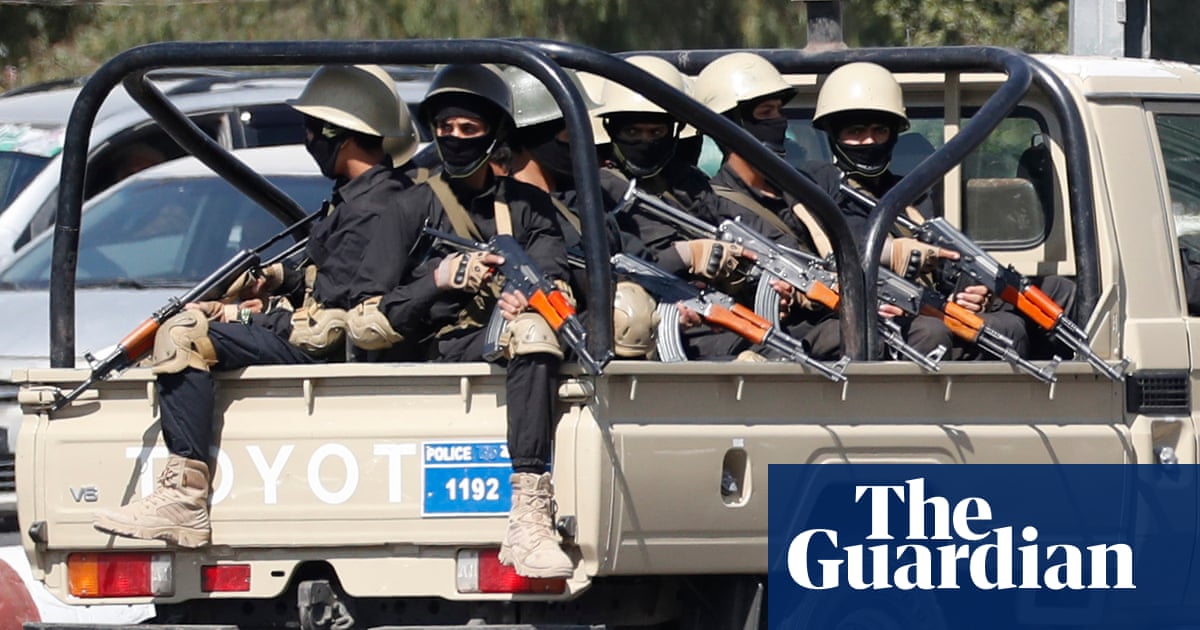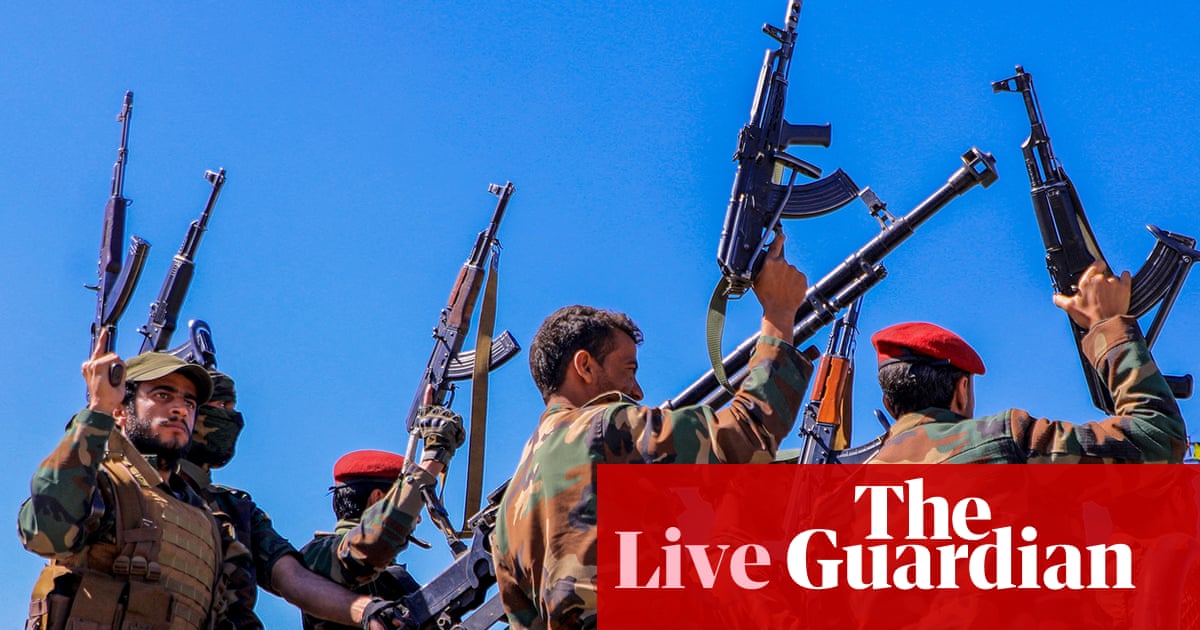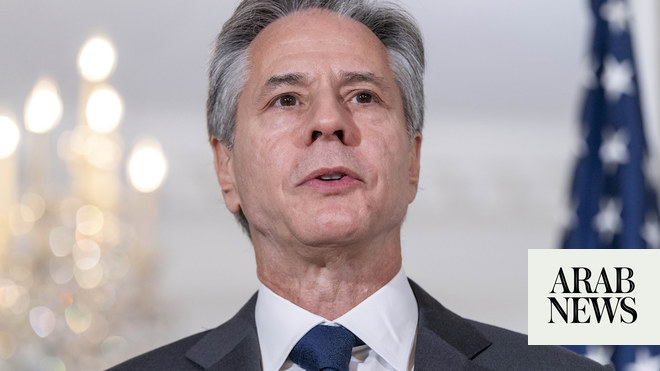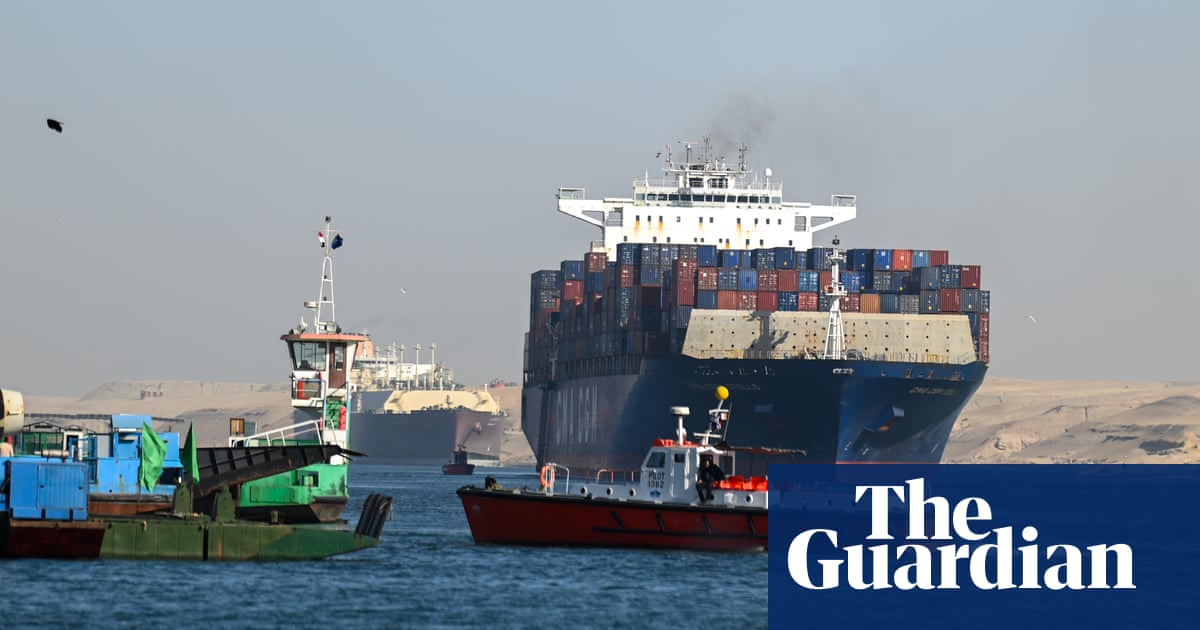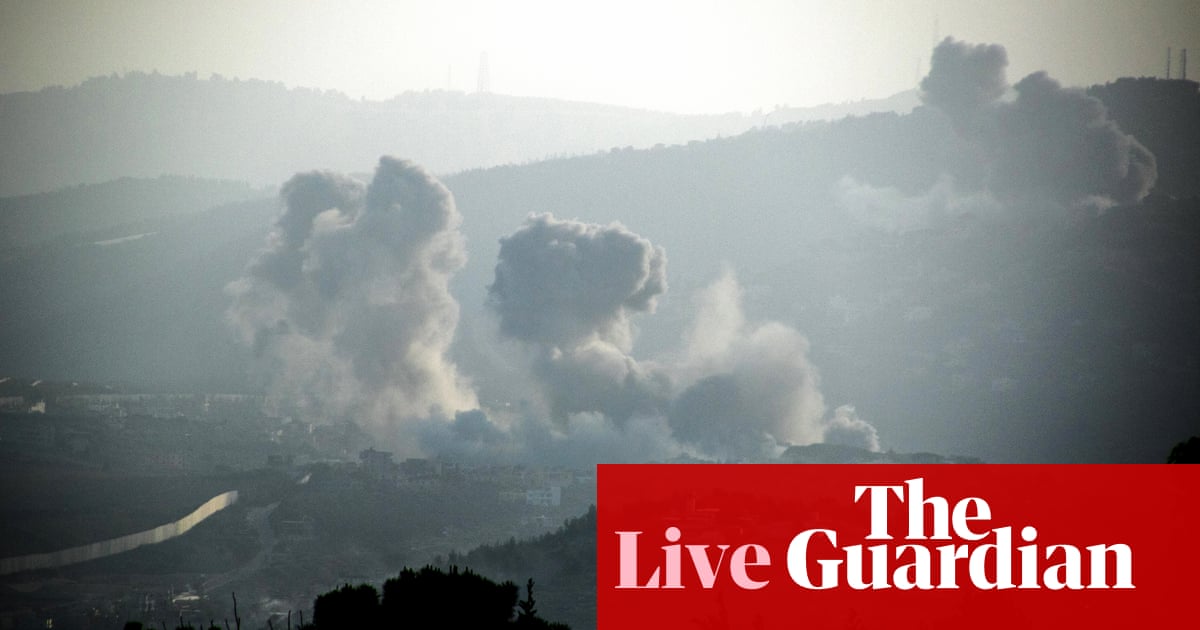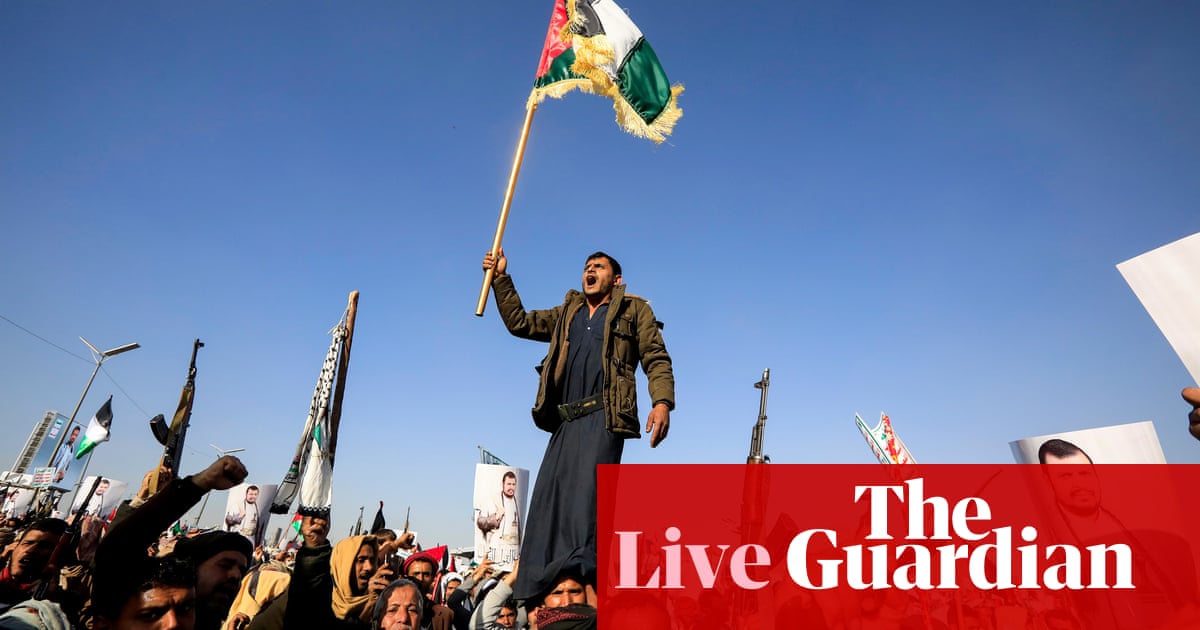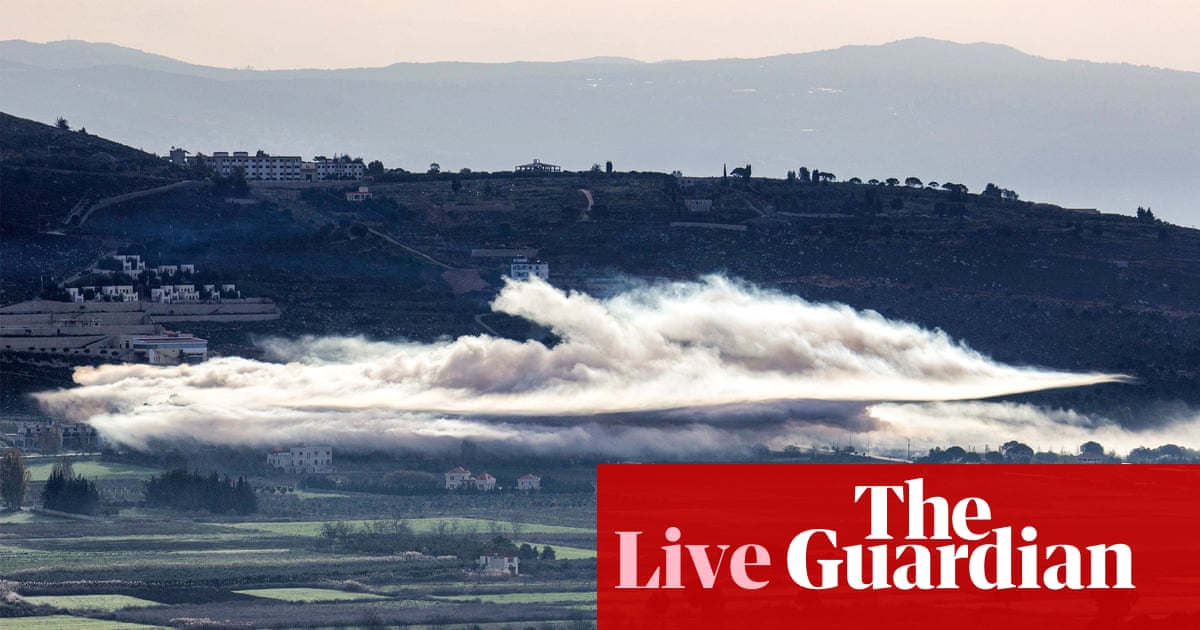
Israel"s army chief: "No Lebanon village out of our reach"
The Israeli Defense Forces chief of staff says no village in Lebanon is out of the military’s reach, after an escalation in violence between Israeli forces and the Iran-backed Hezbollah militant group based there.
Herzi Halevi told a gathering of soldiers in Gaza that their actions in the besieged Palestinian territory had convinced him that they could take the fight into Lebanese territory if needed, AFP reports:
We’ve fought in Gaza, so we know how to do it in Lebanon if we have to. After what you did [in Gaza], there is not a village in Lebanon that you cannot enter and destroy.
Since the start of the border escalation following Hamas’s attack on Israel, 188 people have been killed in Lebanon, including 141 Hezbollah members and more than 20 civilians, according to an AFP tally.
On Wednesday, the mayor of the southern Lebanon village of Kfarkela told AFP that a civilian “was killed during an Israeli artillery strike while he was in his garden”.
Officials in Tel Aviv say 14 Israelis have been killed in Lebanon, including nine soldiers, during the almost daily missile exchanges with Hezbollah.
Blinken: Red Sea attacks "reckless and dangerous"
The US secretary of state, Antony Blinken, has told King Hamad bin Isa Al Khalifa of Bahrain that Houthi attacks in the Red Sea are “reckless and dangerous” during the latest stopover on the senior diplomat’s whistle-stop tour of the Middle East.
The two met in Manama on Wednesday evening, where they discussed the attacks on commercial shipping and “reaffirmed their shared commitment to international law and freedom of navigation”, according to a state department readout.
Blinken expanded on the issue in comments during a press availability following the meeting:
We know all about the hostages in Gaza; well, the Houthis have taken more than 25 hostages from the ships that they’ve seized since this fall. So all of this has required us – this challenge, this threat to the interests of countries around the world, has required us to respond.
We put together Operation Prosperity Guardian with more than 20 countries, including Bahrain, to do everything we can to preserve freedom of navigation, freedom of shipping in the Red Sea.
A UN security vote was expected later on Wednesday on a US-drafted resolution demanding an end to the Red Sea attacks. As of 5pm ET, there was no indication of what time the vote might take place.
Earlier on Wednesday, Blinken met the Palestinian Authority leader Mahmoud Abbas in the West Bank, where he restated the US commitment to a Palestinian state.
Blinken will wrap up his trip in Egypt on Thursday. He visited Turkey, Greece, Jordan, Qatar, the UAE, Saudi Arabia, Israel and the West Bank before his penultimate stopover in Bahrain.
Read our earlier report on Blinken’s travels by the Guardian’s Jason Burke and Sufian Taha:
Two videos from the West Bank showing Israeli troops shooting a 17-year-old boy and security forces repeatedly running over the body of a man they had shot have added to concerns about the Israeli military’s rules of engagement, the Guardian’s Emma Graham-Harrison reports from Jerusalem.
The shooting of 17-year-old Osaid Rimawi in the early hours of last Friday is shown in footage from a security camera in a local shop that was obtained by the Associated Press news agency. The video also shows two earlier rounds of gunfire that injured two unarmed men. Rimawi was killed when he tried to rush to their aid.
The only weapons visible in the footage are guns held by Israeli soldiers. Soldiers gathered round the dead and injured bodies; one prodded Rimawi with his foot, then drove away. They did not make any arrests.
The Israeli military said troops in Beit Rima had opened fire on suspects who had thrown explosives and firebombs, AP reported. Local residents said the killings were unprovoked, and no one had thrown explosives.
The Israeli military has repeatedly been accused of using deadly violence without provocation. Most of the victims have been Palestinians, but they include three Israeli hostages, who were killed after they escaped Hamas captivity in December. They were bare-chested, waving white flags and at least one was shouting in Hebrew.
Earlier this week, footage from Gaza emerged that appeared to show a sniper killing a woman as she led a column of civilians trying to reach a safe zone in November. She was waving a white flag and walking beside a young child.
The head of the World Health Organization (WHO) has posted to Twitter/X a powerful video message urging Israel to allow it to deliver humanitarian aid in Gaza.
“Delivering humanitarian aid in Gaza continues to face nearly insurmountable challenges. We have the supplies, the teams and the plans in place. What we don’t have is access,” Dr Tedros Adhanom Ghebreyesus, the WHO’s director-general, said in the message posted Wednesday afternoon.
“We call on Israel to approve requests by WHO and other partners to deliver humanitarian aid.”
Here are more of images from the Middle East crisis, sent to us over the news wires on Wednesday:
Israel"s army chief: "No Lebanon village out of our reach"
The Israeli Defense Forces chief of staff says no village in Lebanon is out of the military’s reach, after an escalation in violence between Israeli forces and the Iran-backed Hezbollah militant group based there.
Herzi Halevi told a gathering of soldiers in Gaza that their actions in the besieged Palestinian territory had convinced him that they could take the fight into Lebanese territory if needed, AFP reports:
We’ve fought in Gaza, so we know how to do it in Lebanon if we have to. After what you did [in Gaza], there is not a village in Lebanon that you cannot enter and destroy.
Since the start of the border escalation following Hamas’s attack on Israel, 188 people have been killed in Lebanon, including 141 Hezbollah members and more than 20 civilians, according to an AFP tally.
On Wednesday, the mayor of the southern Lebanon village of Kfarkela told AFP that a civilian “was killed during an Israeli artillery strike while he was in his garden”.
Officials in Tel Aviv say 14 Israelis have been killed in Lebanon, including nine soldiers, during the almost daily missile exchanges with Hezbollah.
The Israeli newspaper Haaretz has a few more details on new efforts to free hostages still held by Hamas in Gaza.
As we reported earlier, Israel’s security cabinet will discuss a deal mediated by Qatar to release all the Israeli hostages. Haaretz says the proposal would see hostages freed in several batches in exchange for safe passage out of Gaza into exile for Hamas leaders, and a retreat by the Israeli Defense Forces from the Gaza Strip.
The Israeli cabinet was meeting on Wednesday night, Haaretz said.
Separately, it reports that an Israeli delegation visited Cairo on Wednesday for discussions with Egyptian politicians on a possible swap of hostages held by Hamas for Palestinian prisoners and detainees held by Israel. It cites an Egyptian official.
More than 100 hostages were released by Hamas during a seven-day ceasefire in November, but efforts to negotiate freedom for the estimated 136 who remain in captivity have stalled since.
UN sex crimes investigator to visit Israel
The United Nations chief investigator on sex crimes has accepted an invitation from Israel to visit the country later this month to look at allegations of rape and other sexual offenses committed by Hamas fighters on and after 7 October.
Pramila Patten, the UN’s special representative on sexual violence in conflict, has been granted investigative authority by Israel’s foreign ministry that will allow her to speak with survivors and released Israeli hostages.
Hamas is accused of widespread sexual crimes against women at the beginning of the conflict, highlighted in a New York Times investigation published last month. It found “a pattern of rape, mutilation and extreme brutality against women in the attacks on Israel”.
Patten’s role in Israel is not specifically investigative in nature, according to her office, which portrayed the visit as more of an information gathering trip. It said Patten would brief the media in New York following the visit.
That statement prompted concern from Mark Regev, special adviser to Israel’s prime minister, Benjamin Netanyahu, during an appearance on CNN on Wednesday afternoon:
The feeling of much of Israel, and especially among the women’s organizations, is that the UN is late to the game here, but I suppose we could say better late than never.
The evidence has come out of Hamas using rape as a weapon of war [and] brutalizing women. One of the tragedies, the horrors of this situation is most of the women who are raped are murdered or their bodies mutilated. [These are] terrible, terrible crimes against women, terrible crimes against humanity.
The Times quoted a Hamas spokesman, Basem Naim, as saying the group welcomed in principle “any neutral, fair, transparent and professional investigation” but insisted that evidence of sexual assault should come from “biological samples” obtained through forensic examinations.
Such evidence is notoriously difficult to collect during times of armed conflict.
Germany has pledged €15m to strengthen the Lebanese armed forces as tensions escalate on Lebanon’s border with Israel, AFP reports.
Annalena Baerbock, Germany’s foreign minister, made the announcement Wednesday during a visit to Beirut, saying the money was to help fortify border security. She said the Lebanese army must be able to exercise “effective control” over the area to “contain armed militias and terrorist organizations”.
Lebanon’s Iran-backed militant group Hezbollah, an ally of Hamas, has been exchanging near-daily fire across the border with Israel since the Israel-Gaza war broke out on 7 October, prompting fears of a wider regional conflict.
Baerbock’s visit Wednesday was the latest of a succession of western diplomats heading to Beirut to urge restraint and discuss political solutions. She spoke with Lebanese prime minister Najib Mikati and said an escalation of the conflict “would be a catastrophe for the two countries”.
Defense systems shot down an armed drone on Wednesday over Erbil airport in northern Iraq, where US and other international forces are stationed, Reuters is reporting, citing Iraqi Kurdistan’s counter-terrorism service.
A statement from the service did not say if there were any casualties or damage to infrastructure as a result of the attack, the news agency said.
A group called the Islamic Resistance in Iraq, an umbrella group of Iran-aligned Iraqi militias, said in a statement that it had carried out a drone attack on the US base at Erbil airport.
US officials have yet to comment. More than 100 attacks against US interests in Iraq and Syria have taken place since mid-October, most claimed by the Islamic Resistance in Iraq over Washington’s backing of Israel in its war in Gaza.
Interim summary
It’s 9pm in Gaza City, Tel Aviv and Beirut. We will continue to bring you the news as it happens, so stick with the Guardian’s global blog covering the conflict in Gaza and wider events in the Middle East.
Here’s where things stand:
The United Nations security council is planning a vote on a resolution to demand that attacks by Yemen’s Houthi rebels against ships in the Red Sea stop. The US draft resolution, obtained by The Associated Press, says at least two dozen Houthi attacks are impeding global commerce “and undermine navigational rights and freedoms as well as regional peace and security.”
US secretary of state Antony Blinken shared an update about his meeting with Palestinian Authority President Mahmoud Abbas in a post to X, formerly known as Twitter. He said: “Met with Palestinian Authority President Mahmoud Abbas to discuss ongoing efforts to minimize civilian harm in Gaza, accelerate the delivery of humanitarian aid, end extremist violence, and work towards an independent Palestinian state.”
World Health Organization (WHO) director general Tedros Adhanom Ghebreyesus has said there are nearly “insurmountable obstacles” to delivering humanitarian aid to the Gaza Strip, saying the situation was “indescribable”. He said six planned missions to northern Gaza had been cancelled because Israel had rejected requests and not given assurances of safe passage, adding that a mission planned for today had also had to be cancelled.
British defence secretary Grant Shapps hinted there could be further western military action against the Houthis in Yemen, telling reporters to “watch this space” when asked about possible further action after last night’s drone attack in the Red Sea.
Britain has warned of severe consequences after US and UK warships were forced to repel a barrage of 20 Houthi rockets, drones and cruise missiles fired at ships in the Red Sea. American and British forces say they shot down 18 drones and three missiles on Tuesday. Italian defence minister Guido Crosetto has said that Yemen’s Houthi attacks on Red Sea shipping must be stopped without triggering a new war.
The US state department has said that the US secretary of state, Antony Blinken, is to make an additional previously unannounced stop in Bahrain during his tour of the region. Blinken met the Palestinian president, Mahmoud Abbas on Wednesday morning in Ramallah in the Israeli-occupied West Bank.
A total of 23,357 Palestinians have been killed and 59,410 have been injured in Israeli strikes on Gaza since 7 October, the Gaza health ministry said. The ministry, which is run by Hamas, said 147 Palestinians were killed and 243 injured in the past 24 hours. 1.9 million people, or nearly 85% of the total population of Gaza, are estimated to have been displaced from their homes. Only 15 out of Gaza’s 36 hospitals are partially functional. 330 Palestinians have also been killed in the Israeli-occupied West Bank over the same period, including 84 children, and nearly 4,000 people have been injured by Israeli security forces during that time.
The IDF announced the death of another member of Israel’s troops inside Gaza, taking the total toll of the ground offensive to 186. The Israeli military has said that 1,065 of its soldiers have been injured in Gaza. Israel launched its military campaign after the 7 October surprise Hamas attack during which about 1,200 people were killed. An estimated 240 people were seized as hostages. About 130 are still believed to be in captivity. It has not been possible for journalists to independently verify the casualty counts being issued during the conflict.
Israel’s military claims to have “uncovered more than 15 underground tunnel shafts in the area” of Maghazi in central Gaza, where it says that its troops directed airstrikes that killed “several terrorists”. In Khan Younis, it claims that “in battles in the area over the last day, dozens of terrorist operatives were killed by IDF troops”, adding that “a total of approximately 150 terror targets were struck by IDF troops over the last day”. The claims have not been independently verified.
Israel’s military has also said that it is has again struck at what it described as Hezbollah terrorist targets inside southern Lebanon.
The Palestinian news agency Wafa has reported this morning that Israel has detained a further 26 Palestinians in the Israeli-occupied West Bank. This brings the total number of detainees since 7 October to more than 5,780.
Israeli politician Nissim Vaturi has reiterated his call for Gaza to be burned down, saying “there are no innocents there”. Referring to Palestinians still in northern Gaza after repeated orders from the Israeli military for them to flee, Vaturi said: “One hundred thousand remain. I have no mercy for those who are still there. We need to eliminate them”. The comments come ahead of a hearing on Thursday at the international court of justice, where South Africa has accused Israel of genocide in Gaza.
US national security spokesman John Kirby has reiterated the American position that the claim in the international court of justice from South Africa that Israel is committing war crimes in its devastating military offensive in Gaza is “without merit”.
Kirby was asked at the White House daily media briefing in Washington, DC, if he had read the indictment prepared against Israel, and whether depriving the Palestinian civilian population in Gaza of food, water, fuel and electricity did, indeed, resemble a war crime.
Bearing in mind that the World Health Organization and various United Nations agencies have been warning for many days of the deepening humanitarian crisis for Gazans, the vast majority of whose population has been internally displaced within the besieged territory.
“Yes, I have read the indictment. We find it without merit, we find it counterproductive,” Kirby said.
The US will do “everything” it can to protect shipping in the Red Sea from attacks by Yemen’s Houthi rebels, the White House said moments ago.
The Houthis fired one of their largest barrages of drones and missiles targeting shipping in the Red Sea, forcing the American and British navies to shoot down the projectiles in a major engagement, authorities said earlier today.
The US national security committee coordinator for strategic communications, John Kirby, is talking to the press at the daily White House media briefing now.
He reiterated a message the US has been pumping out of late.
“The Houthis have a choice to make, we have warned ‘em, we have put ships in the Red Sea,” Kirby said.
The White House said the Houthis must stop attacks on shipping in the Red Sea, in which the Iran-backed group is seeking to prevent supplies reaching Israel as well as deterring western warships providing protection to Israel.
“They will bear the consequences for failing to do so,” Kirby said, echoing a similar message stated by the US secretary of state, Antony Blinken.
Here is more information on the latest Houthi rebel attack and the upcoming UN security council vote, from Nicola Slawson for the Guardian.
Yemen’s Houthi rebels fired one of their largest barrages of drones and missiles targeting shipping in the Red Sea, forcing the American and British navies to shoot down the projectiles in a major engagement, authorities said today.
No damage or injuries were immediately apparent.
The attack by the Iran-backed Houthis came despite a planned UN security council vote later today to potentially condemn and demand an immediate halt to the attacks by the rebels, who say their assaults are aimed at stopping Israel’s war on Hamas in the Gaza Strip.
However, their targets have increasingly tenuous or no relationship with Israel and imperil one of the world’s crucial trade routes linking Asia and the Middle East to Europe. That raises the risk of a US retaliatory strike on Yemen that could upend an uneasy ceasefire that has held in the Arab world’s poorest country…
UN security council to vote on US-drafted resolution on Houthi attacks in Red Sea
The United Nations security council will be voting on a resolution to demand that attacks by Yemen’s Houthi rebels against ships in the Red Sea stop, the Associated Press reported.
More from AP:
The U.S. draft resolution, obtained by The Associated Press, says at least two dozen Houthi attacks are impeding global commerce “and undermine navigational rights and freedoms as well as regional peace and security.”
U.S. Deputy Ambassador Robert Wood told reporters Wednesday ahead of the vote that the purpose of the resolution is to send a message that attacking commercial shipping is unacceptable and must stop. “Freedom of navigation, freedom of commercial activity on the seas is critically important to commerce and to national security of a number of states,” he said.
“We’re hoping that it will pass,” he said, “I don’t know how ... one Security Council member is going to vote.”
Wood was referring to Russia, which raised questions last week about the impact of a resolution on peace efforts in Yemen and the spread of the Israel-Hamas war. It could abstain or veto the resolution…




